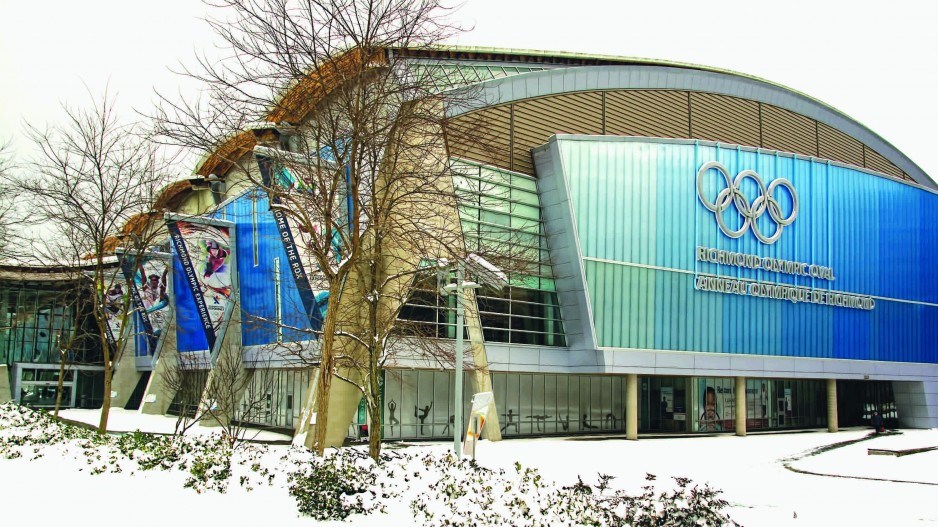The mayors of Vancouver and Whistler and B.C.’s sport minister are not scheduled to meet with International Olympic Committee inspectors touring potential sites of the 2030 Winter Olympics.
A trio of IOC technical experts visited 2002 host city Salt Lake City last week and is now in Vancouver until later this week. The IOC calls the visit a “service” that is provided to assist potential hosts and their national Olympic committees. It is refusing to identify the trio and won’t comment on the itinerary.
“The IOC does not publish the agenda or participant list of such services,” says a prepared statement from IOC headquarters in Switzerland. “The IOC respects the confidentiality of each possible host as they work toward the development of the public and private dimensions of their project. Each interested party is free to communicate to national and regional media when it feels the time is right.”
None of the members of the IOC’s future host commission, which will ultimately recommend a 2030 host to the IOC executive board, is on the trip. The Canadian Olympic Committee (COC) has yet to respond for comment.
“I do not have plans to meet with the IOC technical team this week,” said Whistler Mayor Jack Crompton. “I am expecting municipal staff will meet with them. I do not have details of those meetings.”
"The Mayor is not scheduled to meet with the IOC during the technical visit. I am not aware of anyone at the city doing so either,” said Alvin Singh, Mayor Kennedy Stewart’s spokesman.
Corinna Filion, communications director for Melanie Mark, Minister of Tourism, Arts, Culture and Sport, said, “No one is meeting with them.”
Richmond city hall spokesman Clay Adams confirmed the IOC delegation will visit the Richmond Olympic Oval, but he said he did not know when.
The IOC has replaced costly bidding wars with a new process to encourage interested cities to negotiate behind closed doors through “continuous dialogue." The 2030 host is expected to be chosen no later than the May 2023 IOC session in Mumbai, India.
The Vancouver 2030 idea was hatched by ex-Vancouver 2010 CEO John Furlong at a 2020 Greater Vancouver Board of Trade breakfast that celebrated the 10th anniversary of the Games. He suggested most of the competition venues built for 2010 could be renovated and re-used, along with additional venues elsewhere in B.C.
Last December, Stewart, Crompton and leaders of the 2010 Games’ Four Host First Nations (Musqueam, Squamish, Tsleil-Waututh and Lil’wat) signed a memorandum of understanding to explore a bid. In February, the COC announced its support of a feasibility study.
Vancouver Coun. Colleen Hardwick proposed a plebiscite on the bid for October’s civic election ballot, partly due to the ongoing mystery of the true costs of Vancouver 2010; the board minutes for Vancouver Organizing Committee for the 2010 Olympic and Paralympic Winter Games (VANOC) and City of Vancouver financial records won’t be open to the public until the fall of 2025.
No one else from city council seconded her motion at the April 12 meeting. A day earlier, Stewart had suggested there could be a “community vote or other engagements with residents” after a feasibility study is done in June.
Aside from Vancouver and Salt Lake City, there are two others exploring 2030: winter 1972 host Sapporo and a Spanish/French/Andorran bid led by 1992 summer host Barcelona.
Salt Lake City is the most aggressive. It had a head start over Vancouver by more than a year and has national Olympic committee and state backing.
A month after Calgary voters rejected a 2026 bid in November 2018, the U.S. Olympic Committee chose Salt Lake City to bid for the 2030 or 2034 Winter Games. Last spring, the Salt Lake City-Utah Committee for the Games said it had already raised US$1.5 million for a US$3.8 million bid budget. Utah has already estimated it would cost US$2.2 billion to operate the 2030 Games.
On April 29, Salt Lake City’s Deseret News reported bid committee CEO Fraser Bullock was ecstatic about the IOC visit: “This is exactly what we hoped to receive from the IOC: a partnership [and] great input.”
Bullock was the chief operating officer of Salt Lake 2002 and a member of the IOC coordination commission that oversaw Vancouver 2010.
“I’ve obviously got my fingers crossed for 2030 but whenever we’re asked to host them, we’ll be ready,” Bullock told the newspaper.
Los Angeles will host the 2028 Summer Games — the first in the U.S. since Atlanta 1996. NBC’s TV contract with the IOC is the biggest single source of revenue and the 2030 Winter Games are the last under its current 2021-2032 contract, worth US$7.65 billion.
Meanwhile, the COC has registered to lobby the B.C. government. Mary Conibear of Calla Strategies is asking, on behalf of her client, for the provincial government to commit staff resources to collaborate on the Games conceptual plan.
“Should a Games concept evolve into a successful bid, it could impact a host of government policies, including Indigenous relations, the environment, housing, economic development and others,” said Conibear’s April 28 registration.
Conibear was the managing director of Games operations for VANOC. Last year, she was hired on a no-bid Ministry of Health contract to help organize vaccine clinics under B.C. vaccine czar Penny Ballem, a former VANOC director.
Conibear’s lobbying targets include the Office of the Premier; MLAs; BC Lottery Corp.; BC Pavilion Corp.; and the ministries of attorney general, environment, Indigenous relations; jobs, economic recovery and innovation, and tourism.




